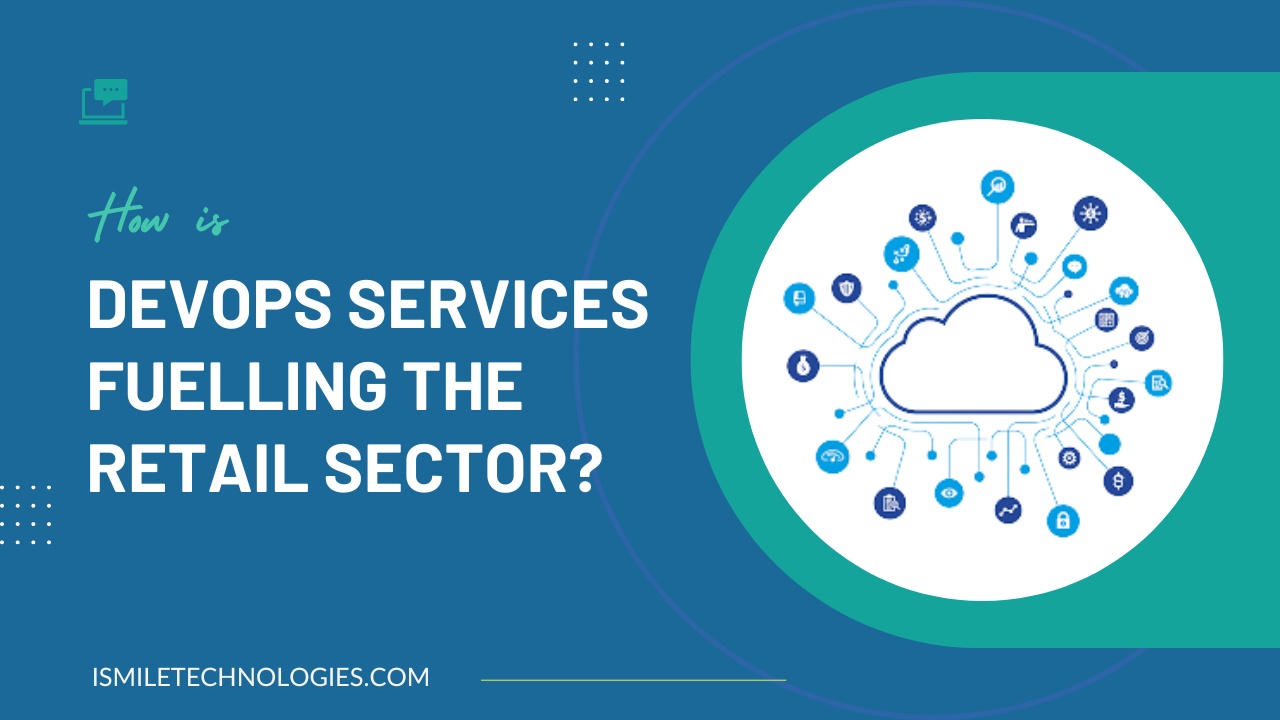Consumer preferences are continually changing, and that is driving the digital world. Today, we have a very fast-paced, customer-oriented software industry, and this industry, DevOps is proving to be an exception. According to a recent report, the DevOps continuous delivery services market is slated to grow by USD 10B by 2023, at a CAGR of 25%. DevOps services and solutions are fast fueling the demand for innovation in the retail sector. This blog will look at how DevOps is evolving in the retail sector.
DevOps as a productive software cycle
The CI/CD cycle is the most enduring thing about this app development method which lets changes happen in real-time. This method has emerged as a productive software cycle with high-class app quality. The global DevOps market is slated to grow at a CAGR of 18% from $6 Billion in 2020 to $20 Billion in 2028. With the help of Continuous Integration, developers can do frequent coding, building, and integrating, thus supporting rapid software advancement.
Around the globe, there has been a significant upsurge in cloud-based deployments as we now have more continuous DevOps testing and development opportunities. Now, let’s talk about DevOps in the retail sector. After the entry of Amazon and eBay, eCommerce platforms have disrupted the retail sectors. And now, it is rapidly pacing for better digital transformations. Now let’s see how DevOps services are fuelling the retail sector.
Online retail sector
Today’s customers always expect new features and better experiences in the retail platform. These features & experiences driven by instant updates must be integrated by taking the help of the most agile and continuously performing service across digital channels. Serving millions of users with the help of a dependable framework and reachable network is a big task. To maintain the offline and online apps, the retailers must ensure the application’s development in a constant loop of developing, testing, monitoring, and implementing, & facilitating the production cycle.
How do DevOps services fit in the retail industry?
Facilitates digital transformation
To drive sustainable market growth; retailers & e-retailers are very much dependent on high-quality software solutions. The concept of shopping has changed with eCommerce app development; thus, to succeed, one must plan for highly flexible software at a competitive cost. Businesses get a free hand with DevOps in retail to make changes as and when required. DevOps helps set up a robust infrastructure & integrating new features and functionalities in the app – everything happens promptly. The CD cycle allows continuous workflow, providing a qualitative online experience.
New features integration
The increasing customer demand has led retailers to provide users with new, intuitive functionality. And for the sake of doing that, DevOps allows on-time implementation of features such as free delivery, notification alerts, UI/UX in cart design, and other details. These features also help engage the people and make a loyal online following.
High-quality and speedy market deployment
To meet the increasing demand of Gen Z, businesses need to adopt new technologies at a higher pace. The developers in the eCommerce domain use DevOps to make a better SaaS experience. This does away with the requirement for end users to download software upgrades. Using this tactic, one can automatically send modifications to the production without personal intervention.
Superior CX
The DevOps agility helps in bug fixing by continuous monitoring and testing. We don’t have any other method that can remove errors that occur while doing product development. The DevOps method facilitates continuous monitoring/testing of the product deployment within a faster time. As a result, DevOps helps bridge the gap between development and operations. Nevertheless, retail organizations play a vital role in meeting customer requests and boosting their ability to enhance CSAT. So as we can see, DevOps helps the retail industry by identifying upgraded technologies and driving operations resulting in a better online experience.
Ready to experience the full power of cloud technology?
Our cloud experts will speed up cloud deployment, and make your business more efficient.
On a concluding note, we must understand that implementing DevOps requires embracing a new culture – where there are no gaps between internal teams and they are on the same page. Hence, everyone is focused on achieving a common goal of success. At ISmile Technologies, we look at DevOps as a no-touch CI/CD driven software delivery approach. It is an approach that ensures that a single integrated delivery function from development to production will provide higher business value to retailers. Schedule a free assessment today.










